Practice and Policy in a Pandemic: Accreditation, Regulations, Future Implications
Webinar Details & Objectives
The widespread impact of the COVID-19 pandemic has created a disruption across the globe in every community, industry, and facet of daily living. At the epicenter, healthcare delivery systems now realize a new normal of working together, delivering care in strained environments, and educating the next generation of healthcare providers. Specifically, the effects of the pandemic on the clinical learning environment have had national and global implications.
Webinar participants will hear the perspectives of several health professions organizations on what has been learned about the clinical learning environment and considerations for the future.
Hosted by the Interprofessional Education Collaborative (IPEC)
Objectives
- Recognize how the COVID-19 pandemic has impacted the clinical learning environment through the lenses of the learner, the clinician educator and the regulatory bodies
- Identify what strategies and tactics have been implemented to support learners during and after a pandemic
- Discuss the long-term impact on the clinical learning environment, its stakeholders, and the learners
- Share opportunities for growth and flexibility in regulation and accreditation
To watch the webinar, click the button below.
Webinar Resources
View the On-Demand COVID-19 related webinars, listed below:
- Making Informed Decisions in Response to COVID-19
- F.A.S.T: Academic Nurse Educators Respond to COVID-19
- Bridging the Gap- Implementing Technology to Deliver Courses Online
- A Call to Leadership: Navigating Uncharted Waters
- Aligning Simulation within COVID-19 Contingency Plans
- COVID-19: Update from Nursing Leadership on the Front Lines
- Teaching Nursing Students How to Manage Crisis During COVID-19
- COVID-19: Breaking Through Denial to Action
- COVID-19 Series: Techniques to Teach Assessment Online NOW!
- Public Health: Nursing Education and the COVID-19 Pandemic
- Considering Pass or No Pass education in response to the COVID-19 Pandemic
- Public Health Insight into the COVID-19 Pandemic
- Creating Calm and Civility during Uncertain Times
- Interprofessional Teaching and Collaborative Practice During COVID-19: A Community Conversation
- Moving Your Admissions Process Online During COVID-19
- Making the Pivot: Online Learning During COVID-19
- Preparing & Transitioning Students to Telehealth Clinical Hours in Graduate Education
- Strategic Diversity Leadership & Culturally Relevant Decision-Making During COVID-19
- COVID-19 Implications for Admissions and the Stability of Holistic Admissions Practices
- What is the New Normal? Guidance for Reopening & Returning to Campus
- Addressing the Collective Mental Health Burden Imposed by COVID-19
- Improving Nurse Preparedness for a Pandemic Response: Implications for U.S. Schools of Nursing
- Enhancing Public Trust and Health with COVID-19 Vaccination: Planning Recommendations
- Hosting a Virtual White Coat/Oath Ceremony
These webinars are free and open to the public. There is an attendance limit at 1,000 attendees. Recordings of the webinars will be available soon after the webinars.
Speakers
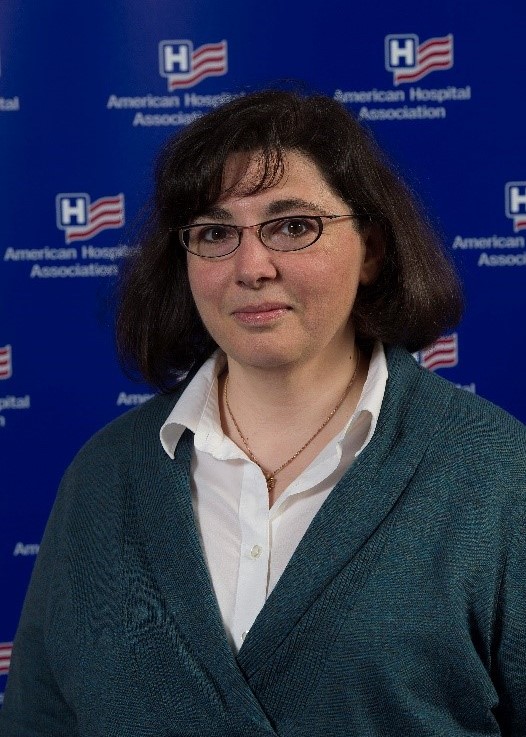 Elisa Arespacochaga, MBA
Elisa Arespacochaga, MBAVice President, Physician Alliance
American Hospital Association (AHA)
Elisa Arespacochaga is vice president of the American Hospital Association’s (AHA) Physician Alliance, a strategic initiative launched as part of the AHA’s ongoing mission to improve the health of patients and communities. Framed around three fundamental beliefs that foster shared decision-making and a create a path for common language among health care leadership, the Alliance advances physician leadership through the educational offerings, professional development opportunities and greater inclusion within hospital and health system administration and policy activities. She received her master’s degree in Business Administration with a concentration in Health Care Policy from Keller Graduate School of Management and a bachelor’s degree in biology and Spanish literature from Amherst College.
 Darla Spence Coffey, PhD, MSW
Darla Spence Coffey, PhD, MSWPresident and Chief Executive Officer, Council on Social Work Education
At-Large Member, IPEC Board of Directors
Darla Spence Coffey is the President and Chief Executive Officer of the Council on Social Work Education (CSWE). CSWE is the national association for social work education, representing over 800 accredited undergraduate and graduate programs of professional social work. Through its programs and initiatives, CSWE promotes emerging technologies, interprofessional education, and innovative models, pedagogies, and practices to advance social work education. As the voice of social work education, CSWE works to strengthen the position of social work within higher education, the national political environment, and in the perceptions of the general public. Coffey received her BSW from Eastern College, her MSW from the University of Pennsylvania, and her PhD from Bryn Mawr College Graduate School of Social Work and Social Research. She has an extensive background in social work practice in the areas of mental health, substance abuse, and domestic violence. More recently, Coffey has been advancing the causes of provider well-being and leadership in presentations and writings. Coffey is a Distinguished Fellow in the National Academies of Practice and is the 2017 recipient of the Advocate for Human Rights Award by the Mandel School of Applied Social Sciences at Case Western Reserve University.
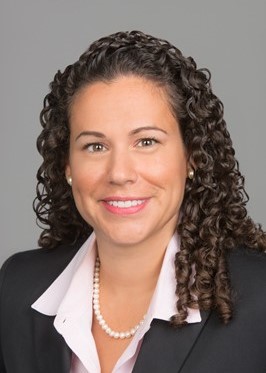 Sheri Cosme, DNP, RN-BC
Sheri Cosme, DNP, RN-BCDirector, Practice Transition Accreditation Program® (PTAP) and Nursing Skills Competency Program
American Nurse Credentialing Center
Sheryl Cosme is the Director of the Practice Transition Accreditation Program® (PTAP) and Nursing Skills Competency Program (NSCP) at the American Nurses Credentialing Center (ANCC). She is involved in setting national accreditation standards for nurse residency and nurse practitioner fellowships. She has presented at several national and international conferences on the need to have residency and fellowships for nurses entering or transitioning within practice settings. Sheryl is also very interested in the knowledge, skill, and attitude acquisition of undergraduate nursing students related to evidence-based practice.
Sheryl is a member of the American Nurses Association, Association of Nursing Professional Development and Sigma Theta Tau International.
Her previous roles include serving as clinical faculty at Georgetown University in their undergraduate nursing program and as a clinical educator at MedStar Georgetown University Hospital where she was the coordinator of a nursing residency program for eight years. As a clinical nurse she worked at St. Francis Hospital in Connecticut in the operating room and at MedStar Georgetown University Hospital in Washington, DC on the surgical specialty unit.
Sheryl earned her Doctor of Nursing Practice from Sacred Heart University in Fairfield, Master’s in Nursing Education at the University of Hartford, and Bachelors in Nursing for the University of New Hampshire. She is board certified in Nursing Professional Development.
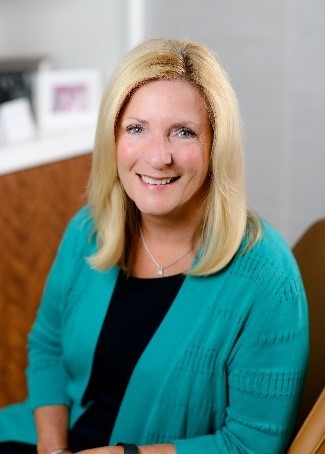 Janet A. Silvester, PharmD, MBA, FASHP
Janet A. Silvester, PharmD, MBA, FASHPVice President of the Accreditation Services Office
American Society of Health-System Pharmacists
Janet A. Silvester, PharmD, MBA, FASHP, is Vice President of the Accreditation Services Office and is responsible for providing strategic direction for all American Society of Health-System Pharmacists (ASHP) accreditation programs and services for pharmacy post-graduate residency and pharmacy technician education and training programs.
Janet holds a BS in Pharmacy from the Medical College of Virginia, Virginia Commonwealth University, a Pharm.D. from Creighton University and a Masters in Business from James Madison University. Janet spent 34 years in hospital practice and was Director of Pharmacy and Emergency services at Martha Jefferson Hospital in Charlottesville, VA prior to coming to ASHP in 2013.
Janet is past president of the Virginia Society of Health System Pharmacists, and Past president of the American Society of Health System Pharmacists. She is past recipient of the Virginia Health System Pharmacist of the Year award, the RD Anderson Distinguished Leadership award, and the Pharmacy Alumnus Service award from the Medical College of Virginia Alumni Association of Virginia Commonwealth University. Janet is also the recipient of the 2012 American Society of Health System Pharmacists Award for Distinguished Leadership in Health System Pharmacy Practice.
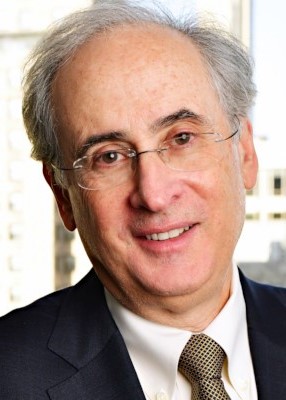 Kevin Weiss, MD, MPH
Kevin Weiss, MD, MPHChief Sponsoring Institution and Clinical Learning Environment Officer
Accreditation Council for Graduate Medical Education
Dr. Kevin Weiss is the Chief Sponsoring Institutions and Clinical Learning Environments Officer at the Accreditation Council for Graduate Medical Education (ACGME). He oversees Sponsoring Institutions (SI) and the Clinical Learning Environment Review (CLER), including serving as Co-Chair for the CLER Evaluation Committee (CEC). Dr. Weiss came to the ACGME from the American Board of Medical Specialties (ABMS), where from 2007 to 2012 he served as President and CEO. Under Dr. Weiss’ leadership, ABMS-International was established, with its first international collaboration in Singapore.
Dr. Weiss has devoted his medical career to issues of health care quality, equity and access to care, and enhancing training experiences for physicians and other providers in health care improvement. Since the 1990s, Dr. Weiss has conducted US and international epidemiological and health services research projects related to guideline implementation, chronic care management, outcomes measurement, quality improvement, and health care equity.
Dr. Weiss served as a member of the Board of Regents for the American College of Physicians, and as a member of the Board of Directors for both ABMS and the Educational Commission for Foreign Medical Graduates. Dr. Weiss completed his clinical training in internal medicine at Cook County Hospital in Chicago. He has a Master’s degree in public health from the University of Illinois School of Public Health and a Master’s degree in health services administration from Harvard University School of Public Health.
He completed his post-doctoral fellowship in epidemiology at the Centers for Disease Control’s National Center for Health Statistics. Dr. Weiss is certified in internal medicine by the American Board of Internal Medicine (ABIM). He also serves as a Professor of Medicine at the Feinberg School of Medicine at Northwestern University.
Moderator
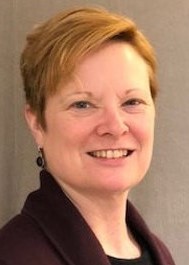 Morgan Passiment, MS
Morgan Passiment, MSDirector, Outreach and Collaboration
Accreditation Council for Graduate Medical Education
Morgan Passiment serves as the Director of Institutional Outreach and Collaboration at the Accreditation Council for Graduate Medical Education (ACGME). She cultivates opportunities for health care and education leaders to improve and enhance their clinical learning environment and prepares them to serve as national leaders of health care innovation. She is also responsible for the operations and strategic management of the National Collaborative to Improve the Clinical Learning Environment (NCICLE). Her primary emphasis has been on building communities of learning, strategic planning, health policy and organizational effectiveness. Ms. Passiment has directed a wide variety of successful leadership activities and groups that provide hospitals and health systems with resources to meet the challenges of a diverse health care environment.
Pricing and CE Credit
This webinar is free to deans, faculty, staff and students from AACN member and nonmember schools.
Continuing Education Credits
 Eligible attendees may receive one continuing nursing education (CNE) contact hour for participating in this webinar. The American Association of Colleges of Nursing (AACN) is an accredited CNE-provider by the American Nurses Credentialing Center’s Commission on Accreditation. The Association of Schools and Programs of Public Health (ASPPH) works with the National Board of Public Health Examiners (NBPHE) to provide CPH credits.
Eligible attendees may receive one continuing nursing education (CNE) contact hour for participating in this webinar. The American Association of Colleges of Nursing (AACN) is an accredited CNE-provider by the American Nurses Credentialing Center’s Commission on Accreditation. The Association of Schools and Programs of Public Health (ASPPH) works with the National Board of Public Health Examiners (NBPHE) to provide CPH credits.
